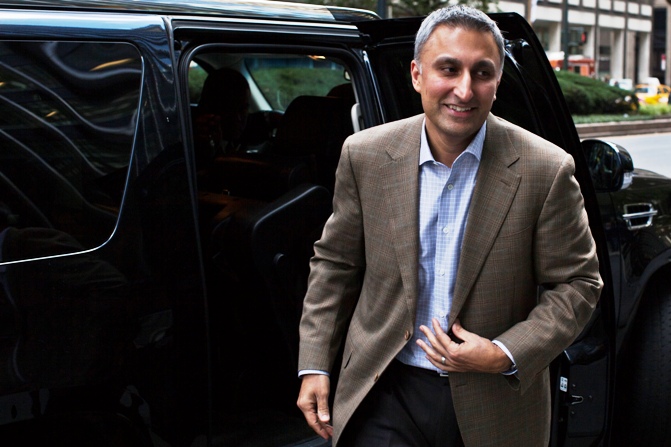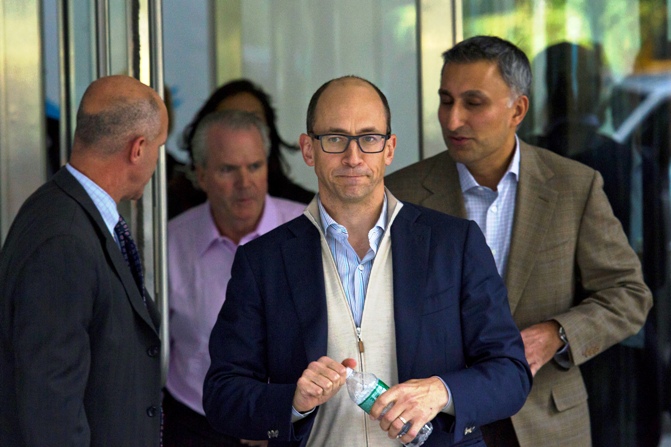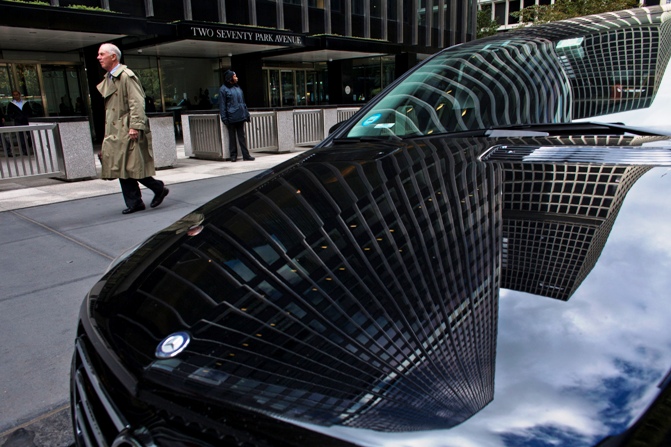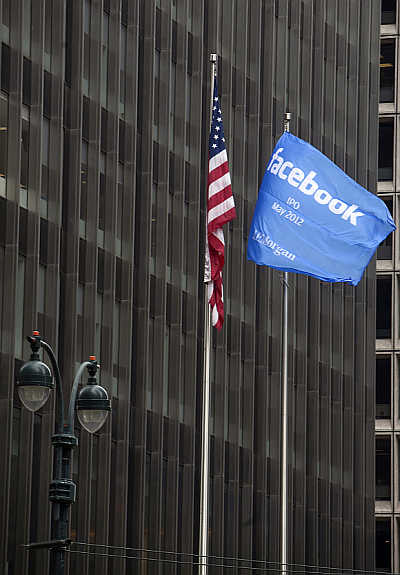 | « Back to article | Print this article |
Twitter roadshow: Less exuberance, more 'nuts and bolts'
During the roadshow leading up to Facebook Inc's initial public offering a year-and-a-half ago, New York's institutional investors were greeted by snaking queues, beefed up police presence, and a media feeding frenzy.
By those standards, Silicon Valley put forward a much more low-key contender on Wednesday, when Twitter Inc hosted a luncheon for about 600 prospective investors at the Mandarin Oriental Hotel in New York City.
After presenting two forms of ID, two guests from each investment firm were quietly led to their seats inside the cavernous ballroom on the 36th floor, overlooking Central Park.
Some reporters waited to try to catch Twitter Chief Executive Dick Costolo, but he did not draw the kind of media circus that mobbed Facebook founder Mark Zuckerberg last year.
Click NEXT to read further. . .
Twitter roadshow: Less exuberance, more 'nuts and bolts'
While Facebook's CEO had shown up in a hooded sweatshirt and sneakers, Twitter's executives were clad in dark suits as they pitched investors over plates of pesto chicken salad and raspberry tart.
"I was expecting a lot of fanfare, like a wedding, but it's very nuts and bolts," said Akram Yosri, a managing partner at 3i Capital Group. "I like that very much. They're still in early stages of growth."
The luncheon was the first major event in an eight-day roadshow to promote Twitter's IPO, which seeks to sell up to $1.6 billion worth of shares in the loss-making social media company.
Investors who met with Twitter this week say they are optimistic about the deal, in part because they see little sign of the irrational exuberance that preceded Facebook's IPO.
Click NEXT to read further. . .
Twitter roadshow: Less exuberance, more 'nuts and bolts'
Although also closely watched by Wall Street and Silicon Valley, Twitter's relatively conservative offering has differed from Facebook's $16 billion IPO in a panoply of ways, from its vastly smaller deal size, to a decision to list on the New York Stock Exchange over Nasdaq and down to the personal styles of the CEOs.
"It definitely was different than when Zuckerberg came through. . . It's the right kind of buzz," said one fund manager, who met with Twitter on Monday.
"With Facebook, the buzz was just stupid," said the manager, who declined to be identified because he was not authorized to speak to the media.
Valuation
Twitter last week said that it would price its IPO shares at $17 to $20 a piece, valuing the online messaging company at up to about $11 billion.
Click NEXT to read further. . .
Twitter roadshow: Less exuberance, more 'nuts and bolts'
That is less than the $15 billion that analysts had expected, and far below the $100 billion valuation that Facebook received in its IPO in May 2012.
However, Facebook had reported an annual profit of $1 billion and revenue of $3.7 billion before it went public, whereas Twitter reported a net loss of $79.4 million on revenue of just $316.9 million in 2012.
At the luncheon, Anthony Noto from Goldman Sachs, the bank that nabbed the highly coveted lead underwriting role, took the stage to introduce Twitter on behalf of other underwriters.
They include Morgan Stanley's Michael Grimes, who was the face of Facebook's IPO 17 months ago, and JPMorgan star banker Jimmy Lee.
Twitter's presentation was delivered by Chief Financial Officer Mike Gupta and Costolo, who took 13 questions on subjects ranging from how the company plans to boost advertising sales to whether incorrect news being spread by users of the microblogging service could put off advertisers.
Click NEXT to read further. . .
Twitter roadshow: Less exuberance, more 'nuts and bolts'
Twitter had asked attendees to submit their questions beforehand for small group meetings, which is a rare practice, one investor said. Attendees were given nametags with a blue Twitter bird and the Goldman Sachs logo.
At the upper end of its IPO price range, Twitter would be valuing itself at 17 to 20 times trailing 12-month sales, according to Reuters' calculations based on the IPO filings.
The outstanding share base could swell by tens of millions of stock as holders exercise options and restricted stock units, inflating the valuation.
In comparison, Facebook trades at about 17 times trailing 12-month sales and LinkedIn Corp at roughly 19 times.
Some fund managers said they viewed Twitter's IPO price range as conservative compared to earlier estimates of $28 to $30 per share, and saw room for the stock to rise after it begins trading on the New York Stock Exchange on November 7 under the ticker symbol ‘TWTR.’
Click NEXT to read further. . .
Twitter roadshow: Less exuberance, more 'nuts and bolts'
Twitter had internally valued its stock at $20.62 as recently as September.
Twitter ‘is getting a really warm welcome from people,’ said Scott Sweet, CEO of research firm IPO Boutique.
"Of all the individuals and institutions I've talked to -- which include multi-billion dollar hedge funds - no one has said they aren't playing," Sweet said.
FACEBOOK'S SHADOW
Facebook's float was marred by an 11 per cent drop in the stock on its second day of trade and successive declines over the next few months as investors questioned the company's ability to grow revenue through mobile devices.
It didn't help that, before its debut, Facebook's underwriters raised the size of the IPO by 25 per cent and also hiked the price range.
Finally, technical problems with Nasdaq trading systems delayed the start of trade, sowing confusion among nervous traders.
It took over a year for Facebook shares to reclaim their IPO price.
One investor who owns shares in Facebook and LinkedIn said his firm is approaching all the Twitter underwriters to ask for a 10 per cent allocation, with the hopes of getting between 1.5 to 3 per cent.
Click NEXT to read further. . .
Twitter roadshow: Less exuberance, more 'nuts and bolts'
"It's a stupid game that is played . . . if you can get what you want, then you don't want it," he said.
Another fund manager said he expects there to be "a scramble" for shares. "It's a hot deal, the room was packed."
Investor interest is expected to build as the roadshow proceeds. After stops in Boston, Chicago, San Francisco, Los Angeles and Denver, the roadshow ends in New York next week with pricing scheduled for November 6.
Some investors say they believe Twitter's management has learned from Facebook's mistakes and are pricing the deal in a more conservative manner.
The company founders "are gazillionaires already. I think they're not going to want to spend the year after the IPO dominated by the argument about 'why we the IPO,'" the second fund manager said. "Life is short."
Additional reporting by Gerry Shih and Edwin Chan in San Francisco, Jessica Toonkel in New York and Ross Kerber in Boston

© Copyright 2024 Reuters Limited. All rights reserved. Republication or redistribution of Reuters content, including by framing or similar means, is expressly prohibited without the prior written consent of Reuters. Reuters shall not be liable for any errors or delays in the content, or for any actions taken in reliance thereon.





